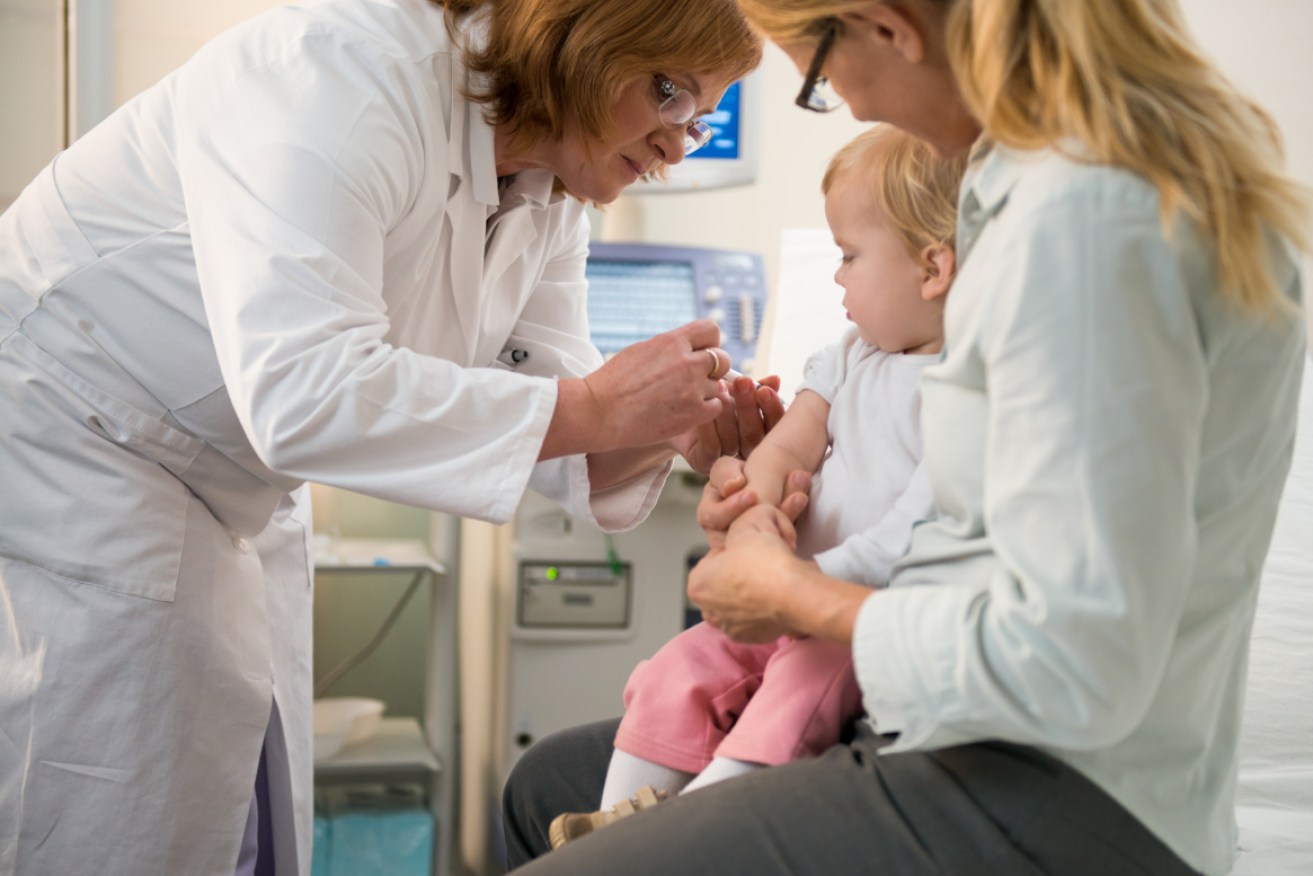Anti-vaccination influencers: The frightening impact of celebrity-led ‘health’ messages


Anti-vaccination messages can spread quickly on social media. Photo: Getty
As a growing number of people use their social media influence to bring personal health messages to the masses, medical myths are spreading quickly and more readily.
When the heavily pregnant wife of NRL footballer Bryce Cartwright took to social media this week to reveal her controversial decision not to vaccinate her children, the online reaction – and subsequent media attention – was swift.
In a series of Instagram posts, Shanelle Cartwright told her 7000-plus followers that her 13-month-old son Koa was not immunised.
“He’s not vaccinated – none of our babes will be,” she wrote.
In a series of follow-up posts, Ms Cartwright said the decision not to vaccinate – now backed by her initially hesitant husband – was a choice for her family, and not about taking an “anti-vax” stance.
https://www.instagram.com/p/Btu5DuVBA8k/
There are plenty of other celebrities, minor and major, who share such views.
In 2017, actor Robert de Niro joined Robert Kennedy jnr in offering $US100,000 to anyone who could “prove that vaccines are safe”. Hollywood star Alicia Silverstone is another noted anti-vaxxer (she also advocates new mothers eating their baby’s placenta), as is Jim Carrey.
But the Australian Medical Association fears such messages actually pose a public health risk.
“Vaccination is not just about the individual, but about the protection of the entire community,” AMA ethics and medico-legal committee chairman Dr Chris Moy said.
“Individuals who choose not to vaccinate their children need to think about that.”
Dr Moy said health messages spruiked by high-profile personalities without medical knowledge were “extremely seductive” – and questionable.
“Social media is a known multiplier, it tends to propagate particular views, whether they’re right or wrong,” he told The New Daily.
“People go, ‘wow she’s glamorous, she must know what she’s talking about’. But the bottom line is there is a gain for individuals, they have a secondary gain, which is more notoriety and fame.
“I would hope that celebrities would question their own evidence about this, but beyond this, also question if they have any right over anyone else.”
The public health message is timely, with measles cases re-surfacing in both Victoria and NSW in February, prompting authorities to issue vaccination reminders.
On Thursday, Victoria’s acting chief health officer Dr Brett Sutton said unvaccinated individuals had the highest risk of catching the virus.
“People need to have received two doses of measles-containing vaccine to be fully protected,” he said.
“Many adults have only received one vaccine against measles, and therefore most cases are in this age group.”
The World Health Organisation also reports a global increase in measles cases, partially fuelled by the anti-vaxxer movement.
“Gaps at local level still offer an open door to the virus,” WHO European director Zsuzsanna Jakab said.
London-based anthropologist and vaccine specialist Dr Heidi Larson said the outbreaks were a “wake-up call” about the importance of vaccination confidence.
In Australia, early childhood vaccination coverage has increased since 2008 and we are nearing the 95 per cent immunisation target.
But we still have some way to go. Figures from December 2018 show national coverage rates were 94.04 per cent for one year olds, 90.75 per cent for two year olds and 94.67 per cent for five year olds.
Professor Julie Leask, a social scientist and vaccination researcher from the University of Sydney’s Nursing School, said celebrity influencers were only a small piece of the puzzle that shaped the views of parents who decide not to vaccinate their children.
“We can’t just put the blame on celebrities or parents, we’ve got to look holistically at this problem, and address it at all different levels, including systemically,” she said.
“If you want to have a vaccine scare campaign catch fire, have a doctor who publicly spreads fear. Because people trust doctors and believe what they say.”
Professor Leask said research had found that many factors led to parents deciding not to vaccinate children. Barriers to accessing vaccinations, including inconvenient clinic hours and location, also played an important role in uptake and outbreaks.
“A single message from a single celebrity is going to be a drop in the ocean of health information,” she said.
“Where it could have an effect is when you have a parent who is already concerned about vaccinations, or may have had a bad experience with their GP or healthcare provider that made them lose a little trust in health advice.
“Then they see someone who is important in their social network who isn’t vaccinating as well, so it just might be a catalyst in that decision.”
Professor Leask said parents deserved credit for having the capacity to be critical about the media messages they consumed.
“If every pronouncement by a celebrity had the kind of effect that people are worried about we’d have much lower vaccination rates,” she said.








